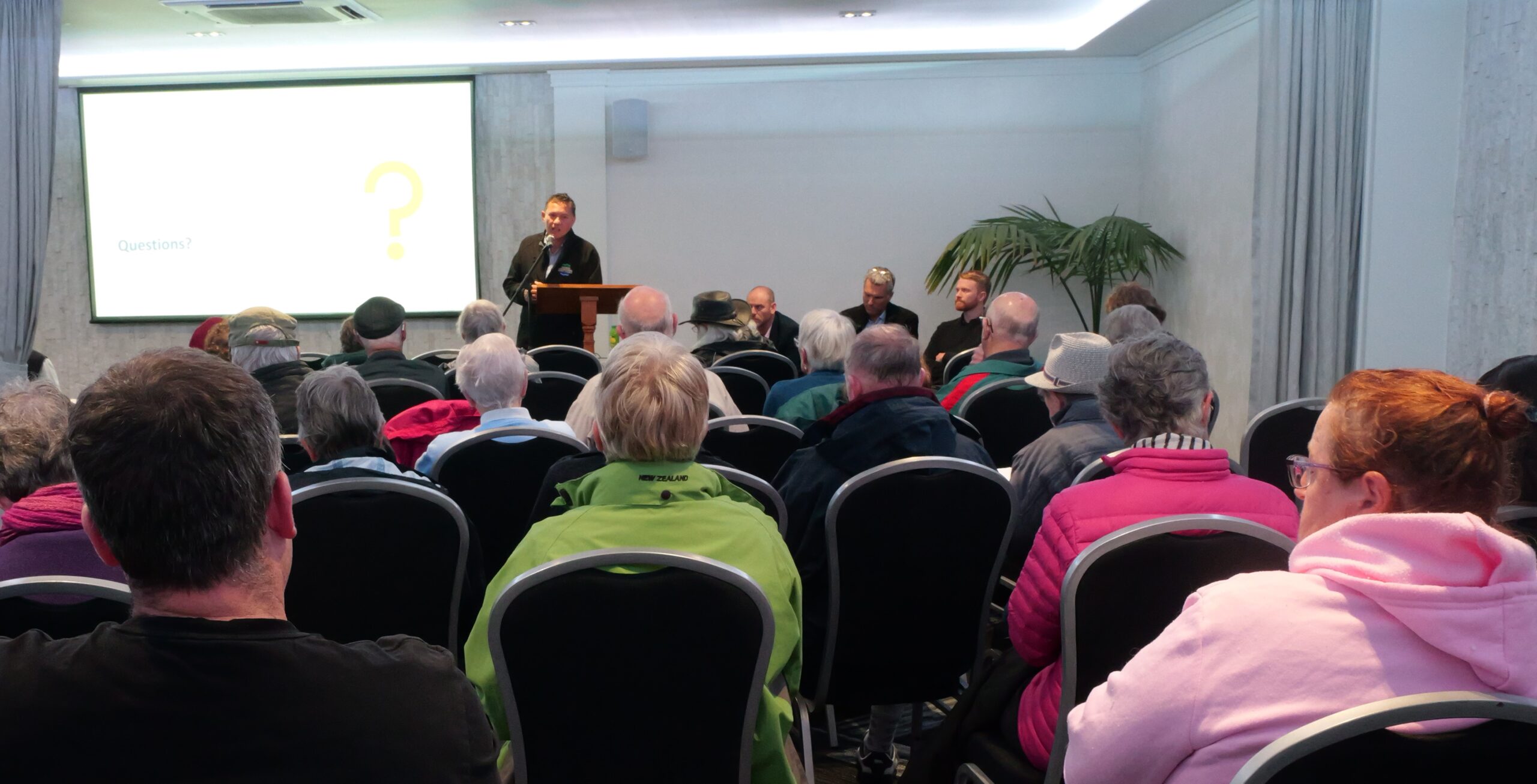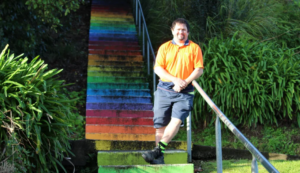Around 60 people attended a public meeting in Thames this week, jointly organised by Thames-Coromandel District Council and the Moanataiari Residents’ Committee, to consider options for enhancing Moanataiari’s sea wall.
A recently completed five-yearly inspection and performance review of the Moanataiari Inundation Protection Scheme, or sea wall, conducted by engineering firm Tonkin and Taylor, found the wall is currently performing well but will require upgrades to extend its life span beyond 2036.
Providing options for improvements to the sea wall are part of the adaptation pathway for Moanataiari that resulted from council’s three-year Shoreline Management project.

Council project leader Amon Martin told the meeting that improving the sea wall was of high importance and was being considered as part of Council’s Long Term Plan.
“We recognise the importance of protecting Moanataiari and we’re reassured from the recent performance review indicating the wall is providing the level of service it was designed to provide. However, there’s always residual risk, or risk of a ‘greater than design’ event occurring. Looking ahead, additional investment is required so we can continue manage risk to Moanataiari appropriately,” he said.
The Moanataiari Residents’ Committee has been leading community engagement on the options for sea wall improvement, and helped organise the meeting to ensure residents could understand the options and express their views.
At the meeting, a Tonkin and Taylor engineer outlined two options for the sea wall improvement.
- Option 1: Extending the wooden parapet of the current sea wall by 200mm.
To provide additional short-term protection of up to 10 years against waves overtopping the wall in large storms. This option would not provide long-term protection against expected sea level rise. Anticipated cost of Option 1 is between $200,000 – $500,000.
- Option 2: Replacing the current timber parapet with a solid concrete structure.
To provide protection against both rising tide and wave splash, with an expected life span of between 30–40 years. Work related to this option may require reducing the width of the current footpath. Option 2 is estimated to cost between $2–4 million.
At the end of the meeting, residents completed a survey indicating their preference. Survey findings will be reviewed and incorporated into the proposal for the Long Term Plan.
Potential funding sources for any selected option have not yet been identified, with both central government and ratepayer contributions likely areas for investigation.
Residents were also given an update on council’s maintenance of the drainage and stormwater system in the area, to better protect against rising groundwater during storms. More regular inspections of outlets and pipes, and checks of the pump and the generator, are already underway, following a public meeting earlier this year.
Council water service manager Brett Houston also told the meeting that an assessment would be conducted to see if a new pump or generator was required.



